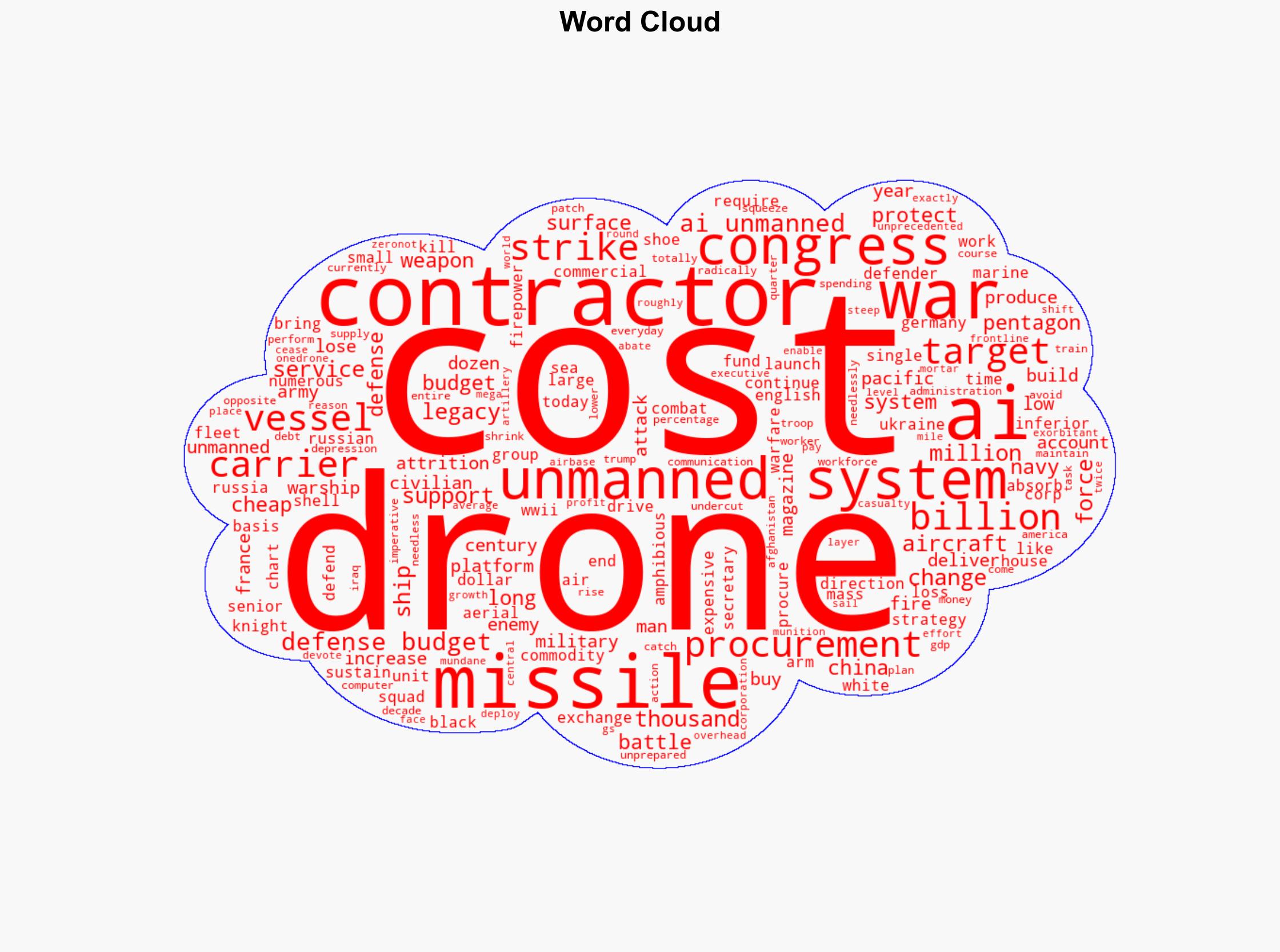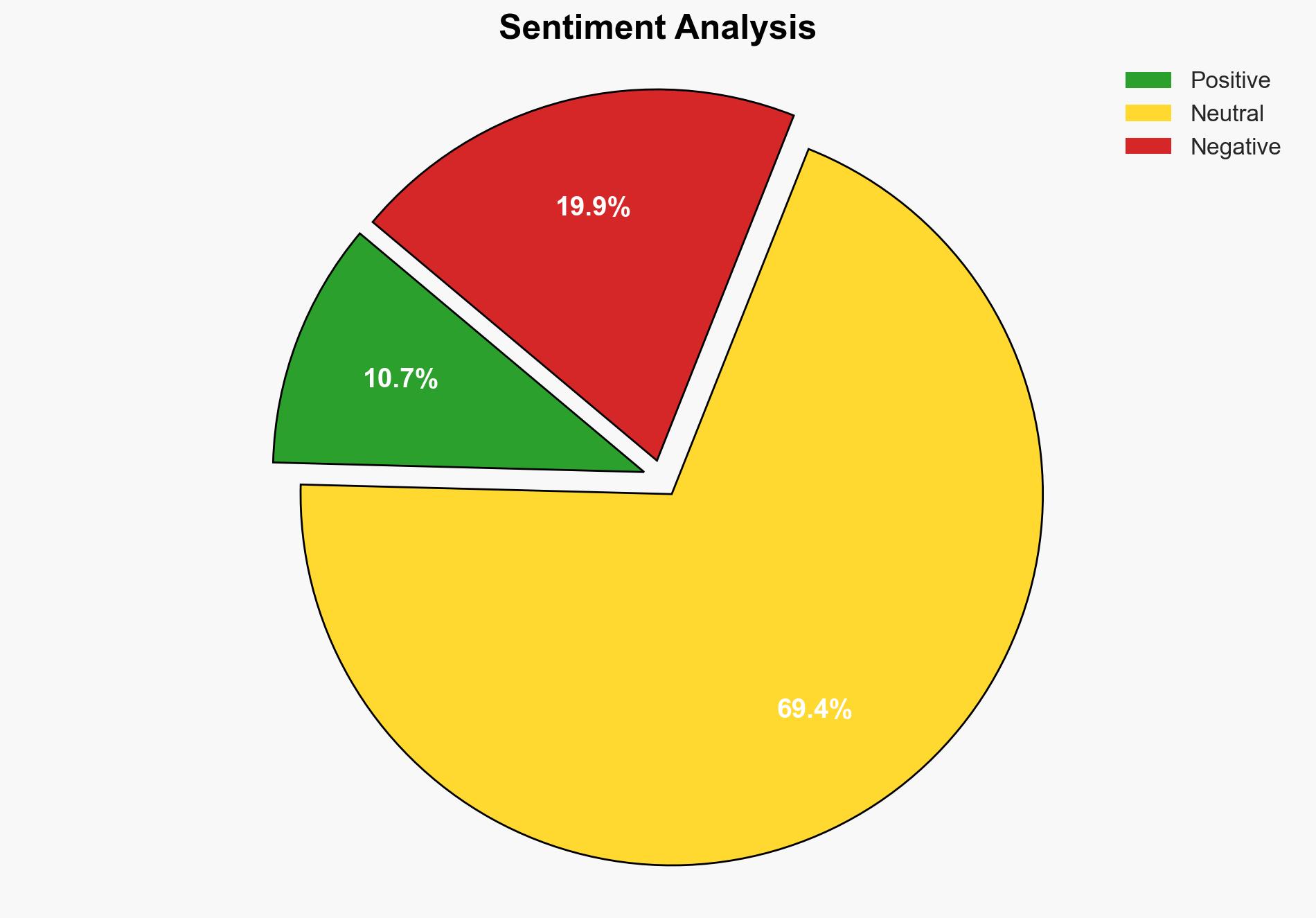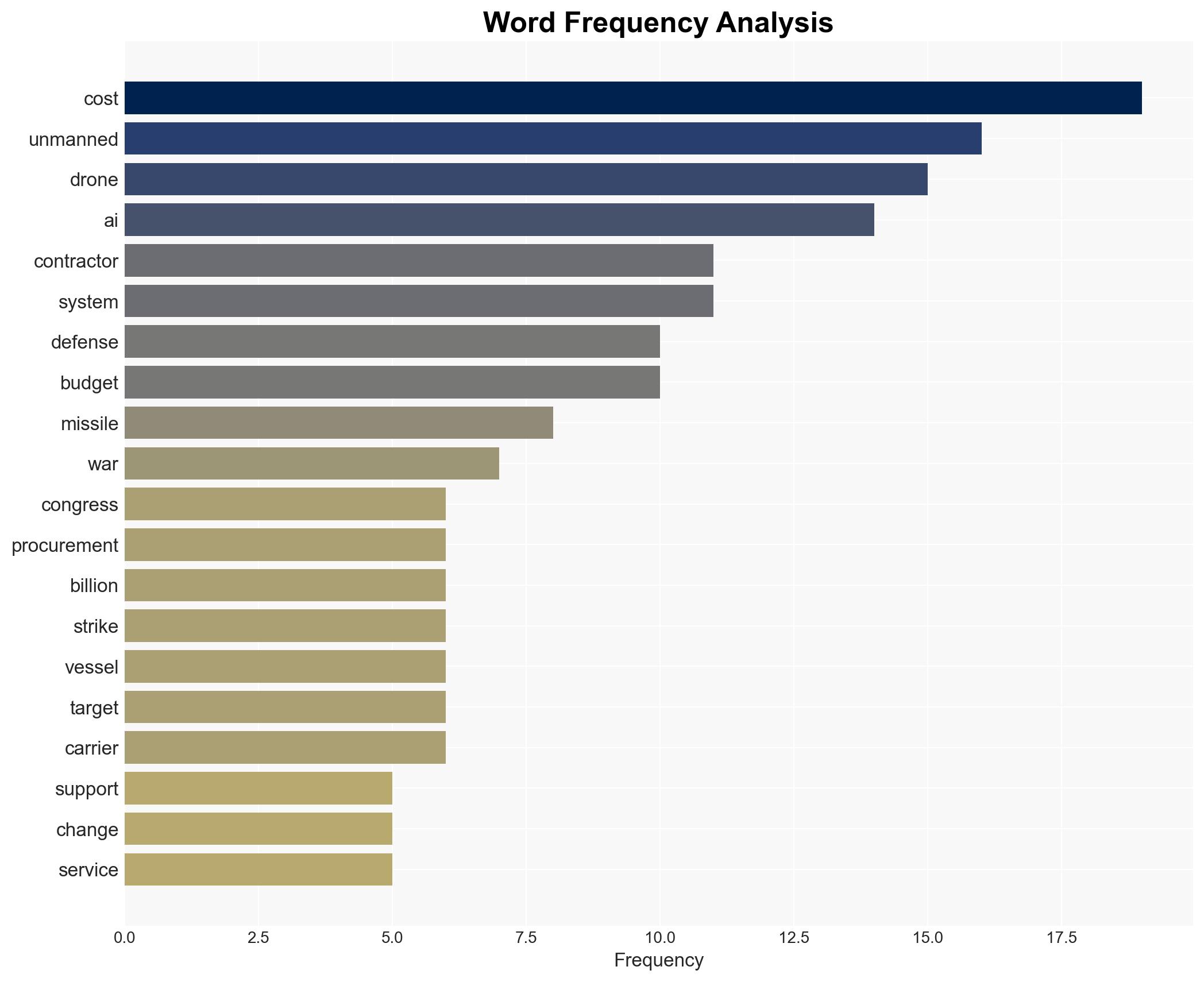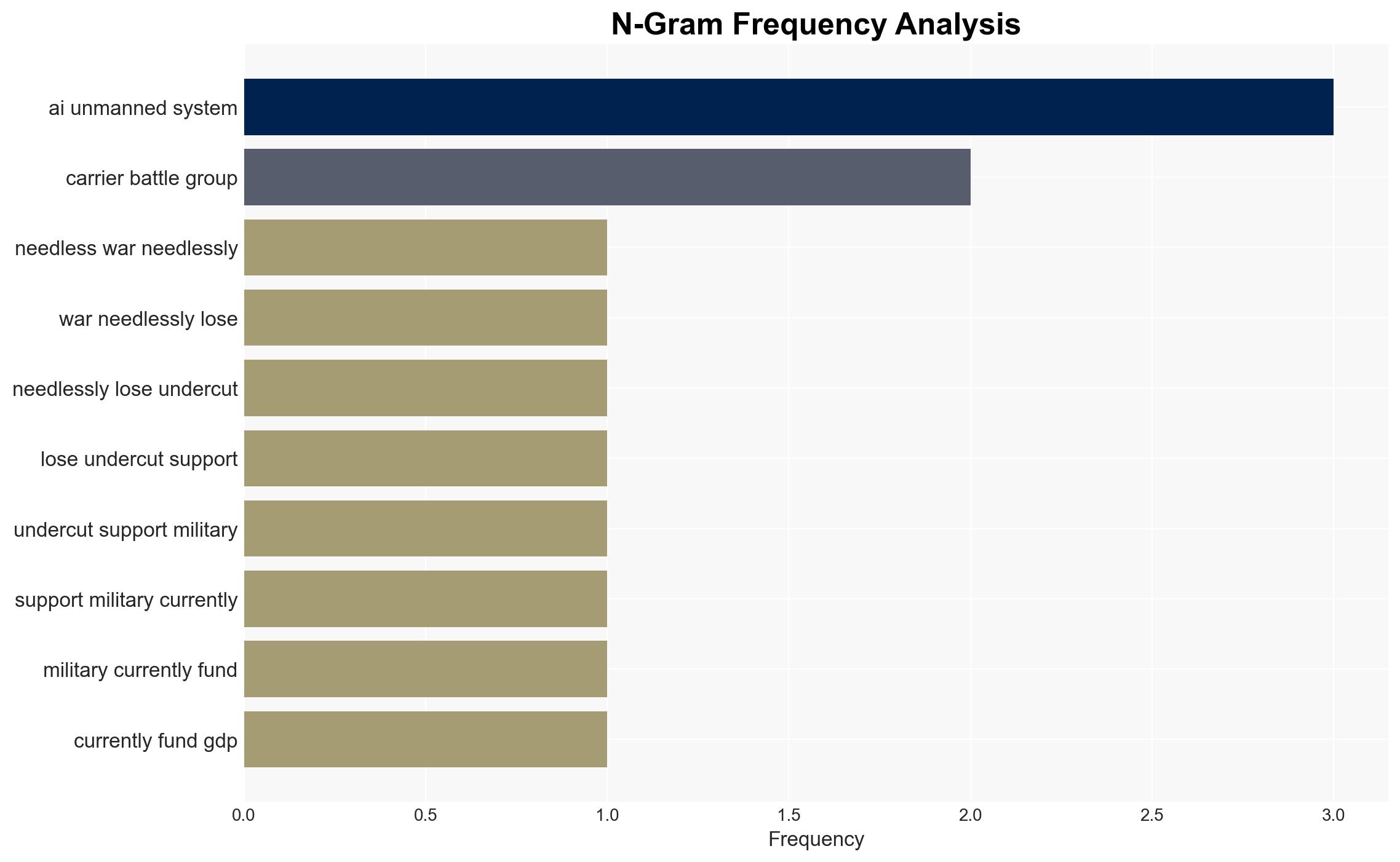Pentagon Change Radically or Lose – Hoover.org
Published on: 2025-11-14
AI-powered OSINT brief from verified open sources. Automated NLP signal extraction with human verification. See our Methodology and Why WorldWideWatchers.
Intelligence Report: Pentagon Change Radically or Lose – Hoover.org
1. BLUF (Bottom Line Up Front)
The Pentagon must radically reform its procurement and operational strategies to remain competitive in modern warfare. The most supported hypothesis is that without significant changes, the U.S. military will face strategic disadvantages against adversaries who are rapidly adopting AI and unmanned systems. Confidence Level: Moderate. Recommended action includes prioritizing AI and unmanned systems procurement, reducing reliance on costly contractors, and increasing flexibility in defense budgeting.
2. Competing Hypotheses
Hypothesis 1: The Pentagon’s current procurement and operational strategies will lead to strategic disadvantages in future conflicts, necessitating radical changes to maintain military superiority.
Hypothesis 2: The existing procurement and operational strategies, while not optimal, are sufficient to maintain U.S. military superiority due to technological and resource advantages.
Hypothesis 1 is more likely due to evidence of adversaries’ successful integration of AI and unmanned systems, and the inefficiencies and high costs associated with the current contractor-heavy approach.
3. Key Assumptions and Red Flags
Assumptions include the belief that AI and unmanned systems are critical to future warfare success and that current procurement processes are too rigid and costly. Red flags include potential resistance from entrenched defense contractors and political interests that may impede reform. Deception indicators could involve overstated capabilities of AI systems or underreported costs of current strategies.
4. Implications and Strategic Risks
Failure to adapt could lead to a loss of military superiority, increased vulnerability to adversaries’ technological advancements, and potential escalation in geopolitical tensions. Economic risks include inefficient allocation of defense funds and increased national debt. Informational risks involve potential adversaries exploiting U.S. procurement inefficiencies.
5. Recommendations and Outlook
- Prioritize the procurement of AI and unmanned systems to enhance operational capabilities.
- Reduce reliance on costly contractors by streamlining processes and increasing in-house capabilities.
- Advocate for legislative changes to increase flexibility in defense budgeting and procurement.
- Best-case scenario: Successful reform leads to enhanced military capabilities and strategic advantages.
- Worst-case scenario: Inaction results in strategic disadvantages and increased vulnerability.
- Most-likely scenario: Partial reforms lead to incremental improvements but fall short of transformative change.
6. Key Individuals and Entities
Secretary of Defense, Pentagon senior leadership, major defense contractors, and congressional defense committees.
7. Thematic Tags
Regional Focus: United States, Global Military Strategy, Defense Procurement, AI and Unmanned Systems
Structured Analytic Techniques Applied
- Causal Layered Analysis (CLA): Analyze events across surface happenings, systems, worldviews, and myths.
- Cross-Impact Simulation: Model ripple effects across neighboring states, conflicts, or economic dependencies.
- Scenario Generation: Explore divergent futures under varying assumptions to identify plausible paths.
- Network Influence Mapping: Map influence relationships to assess actor impact.
Explore more:
Regional Focus Briefs ·
Daily Summary ·
Methodology





